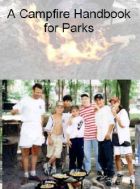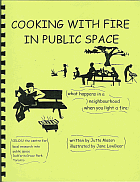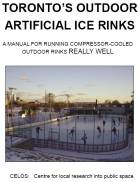

Pages in this Folder:

Related Folders:
See also Department Site Map
Support Provided by

Toronto Parks and Trees Foundation

This website has received support from celos.ca through the Trillium foundation.
Publications
Comments?
For the basics, see
- Website & Privacy Policies
- How To Get Involved
- The Role of the Park
Search options:
Department Site Map
Custodians:
< Chapter Eighteen | Stories List | Chapter Twenty >
Winter Story: The making and unmaking of Dufferin Grove Park. Chapter Nineteen.
A summer serial, continuing into the fall and winter
November 24, 2011
By Jutta Mason
Recap: Dufferin Grove Park is doing things that don’t fit the city’s policies, says the current management of Parks, Forestry, and Recreation (PFR). According to a staff report obtained through Freedom of Information, the way the park is run leaves the city “vulnerable and open to major risk factors.”
Since last May, a new recreation supervisor has been tasked with dissecting out the traditional recreation activities from the many “programs that represent anomalies for PFR.” Despite this, the Dufferin Grove anomalies are stubbornly clinging to life, as the rink season begins.
In the last chapter I wrote about the PFR policy-writers’ draft bake oven/tandoor policy. It says that if anyone is caught using a community oven without a permit, they’ll be fined $300. Bakers will need permits to use bake ovens for running programs or events, or even just for learning how to bake with wood. The policy says that bake oven programs must “support their local community, the mandate of Parks, Forestry and Recreation, and / or the goals of the Toronto Food Strategy” – but the bakers who help the city carry out those mandates and/or goals are supposed to pay a permit fee to the city for the work they put in. And before anyone can bake a loaf of bread they must buy extra insurance (at least $23 each time) so that they can “hold the city harmless,” presumably if anybody burns their fingers. Under these conditions, there will be no more community bake ovens. In this chapter I want to write about what happens to people when they try to engage their elected representatives about bad policies like this one.
On November 22, the draft bake oven policy was brought before the Parks and Environment Committee, for the third time. Back in September, when it was presented the first time, PFR staff had been directed to go back and meet with the current oven users, to go over the problems in the policy. But despite many objections and alternative suggestions from the bakers, PFR policy staff returned the bake oven policy to the November Parks Committee agenda almost exactly in its original form. This was no surprise, since Diane Stevenson, the lead policy manager, had made it clear from the outset that the bakers’ objections made little sense to her.
As it gradually became obvious that discussing the issues with the policy manager led nowhere, we resolved to talk to the councillors on the Parks Committee directly. (This is regarded as a kind of lobbying.) We sent each of them a request: could a small group of bake oven users come to brief them for fifteen minutes at their convenience? But there were no takers (nor even responses). Ward Eighteen Councillor Ana Bailao suggested setting up an oven policy briefing session in a meeting room at City Hall on November 1, in case that was more attractive to the committee members. She invited all the councillors who might be interested. But none of the members of the Parks Committee came to our session, nor did they send any of their staff. I did however get an e-mail from Councillor Pasternak’s office saying they already know about bake ovens and support them, and that they didn’t need to find out more.
Then a week before the November meeting, bake oven users got to meet with Councillor Mary-Margaret MacMahon, one of the members of the Parks Committee. Anna Bekerman, the longest-term baker in our group and the webmaster of the “public ovens” website, had brought along some amendments that might help. It was clear that the councillor was run off her feet, but she agreed there were problems with the PFR policy. She said she would sponsor the amendments.
But when the day came, it turned out that Councillor MacMahon was stuck in an airport in Florida. Ayal Diner from the West-End Food Co-op, who was coming to depute to the committee, was held up with child care problems at the last minute and so couldn’t come. When Anna offered to read Ayal’s deputation, the chair of the committee said no. It had already been printed off for the committee members and they could read it themselves if they wanted to.
In the committee rooms of city hall, Robert’s Rules of Order reign. The chair of the meeting, in this case Councillor Norm Kelly, from Scarborough, is treated with elaborate respect. Whenever one of the councillors asks senior city management staff a question, the staff preface their response with a little nod to the chair, “Through you, Mr.Chair...” He or she nods back, sanctioning the direct exchange. Members of the public may sit and watch quietly. If they feel they know something that the councillors should hear, they may depute for five minutes (sometimes less). Committee members may ask a few questions after a deputation. After the deputants are dismissed by the chair, they have to keep quiet, even if a committee discussion is full of mistakes. Most people find the process so frustrating that they don’t come back, and so the committee deliberations are often without much (or any) audience: a poor forum for democracy.
But since the friends of bake ovens couldn’t get to talk to the committee members outside of this forum, we were stuck trying to make our points there.
Of course, most people can’t take off a whole morning from work to go and depute at City Hall. So we had asked one of the CELOS researchers to interview as many park oven bakers as he could get. He asked them all the same question: are you willing to pay to run community programs at the bake ovens?
There are only four parks that have bake ovens, and two more that have been trying for 5-6 years to get permission to build one. So our videographer was able to put together a lively 4-minute video of everybody’s comments, and he played the video for the Parks Committee.
When the video was finished, two councillors said they wanted to ask him some questions about ovens. But our videographer was not a baker. He had never been at a committee meeting before, and he was clearly taken aback when the councillors asked him to stay in the deputants’ chair. So Anna Bekerman slid in beside him and said she was willing to help out if the councillors had questions based on the video.
As well as being a baker, Anna is one of the senior part-time staff at the park. She began baking as a volunteer many years ago. Then she helped to teach part-time staff. Anna and the other part-time staff got so good at baking that they managed, over the past five years, to add thousands of dollars to the Dufferin Grove “market money,” to improve other programs at the park. Anna is also a Spanish-to-English translator. While she was studying translation in Spain, she studied how they bake too, and brought back some new baking lore. Then she lived for a time in Brooklyn, where she helped out at the start of the Prospect Park oven program (they were inspired by Dufferin Grove). Now she’s back in Toronto, working two days a week at the park, with a floating line between paid work and work that she and other park staff give for free. Most recently, Anna set up the CELOS “public ovens” web site, which has an encyclopaedic amount of information on it about all the Toronto ovens (including those on Toronto Community Housing land).
But when Anna slid into the seat beside our videographer to help him answer the councillors’ questions, something remarkable happened.
Brenda Patterson, the former general manager of PFR, who had been promoted to deputy city manager in summer (and therefore sitting at the left hand of the committee chair), leaned over and said something to Councillor Kelly. He listened, and then interrupted Anna. “Do you work for the Parks Department?” he asked. She said yes. “Then I will need to ask you to step down immediately. You are in conflict of interest. You should have declared your conflict at the outset. There are management staff here to answer any questions.”
So Anna withdrew. The person who knew most about bake ovens in that room, who had given countless unpaid hours to the baking program at Dufferin Grove and also to working with new bake oven users all over the city, had been silenced as a cheater. (If any reader wishes to let the councillor know how they feel about his brave gesture in upholding the city’s conflict of interest policy against someone not allowed to answer back, his e-mail is Councillor_kelly@toronto.ca).
The City’s reasoning, insofar as there is any, for such a silencing order is that any part-time staff would of course be speaking in favour of bake ovens just so that they could score more work hours for themselves.
In real life, while it would be a great help for the park if Anna and some of the other experienced part-time staff could work more hours at the park, they haven’t got time. They have too much other work, unrelated to the park. And indeed, why would any intelligent, capable person want to work for the city at all, in a climate of simple-minded mistrust?
The answer, in the Dufferin Grove neighbourhood, is found in the web of relationships among park friends and park staff that has grown up here. The staff are not treated with mistrust by the many friends of the park. Affection and respect keep them here, for now, even during this time of unmaking. The contest – lively ingenuity versus silencing mistrust – is not yet settled.
When the Parks Committee deputations were done and it came time for the councillors to discuss the issues, it seemed as if the oven users had not spoken. None of the issues raised were discussed in any detail. No careful consideration (sometimes called “due diligence”) was given to the probable consequences of charging fees for community ingenuity. Instead, with good speed, the councillors passed the original PFR version of the bake oven policy. They added some window dressing: an amendment calling for “bake ovens to operate and flourish in Toronto parks in the spirit of collaboration and cooperation with the communities.” Laugh or cry?
One of the questions that the councillors left untouched was this one: why do city bake ovens need a policy in the first place?
In the past few years there has been such a proliferation of policies that city councillors and even city staff are now told to check with Freedom of Information when they’re not sure about a policy question – nobody else can reliably track them all. But who said there has to be a policy about every city activity?
One answer is, city management staff believe that policies are the way to go. Along with their policy-writing staff, they spend much of their time devising, revising, and shopping policies around at staff meetings and Council meetings.
There’s a very natural and understandable conflict of interest here. Policies are a growth industry. Low-paid staff are supposed to work with park users. Well-paid staff work with policies, at four times the wage. And policies take a long time to work out. In the case of the city’s bake oven policy, it’s been “under development” in various PFR offices and meeting rooms since 2007. It took years to invent and fine-tune a policy that will charge community people to build, maintain, repair, and carry out city programs in their neighborhood oven. When staff succeed at getting policies approved, they can begin the next long stage of working out the intricate details.
It’s important to remember, though, that while City management staff have an understandable interest in expanding their jobs and their income, city councillors must attend to representing the interests of the voters. In the context of a proliferation of policies and visionary plans that absorb much of the councillors’ time, councillors need to clear room for themselves, so they can pay better attention to the increasing frustration of the electorate.
People’s frustration with encounters with municipal governance isn’t unique to Toronto, of course. That’s why CELOS researchers will be watching, with great interest, to see what happens at the Ontario Court of Appeal at Osgoode Hall on Monday November 28. An Ottawa group, the Friends of Lansdowne Park, have taken the Ottawa City Council to court for working out a very dubious sole-source deal with the Ottawa Sports and Entertainment Group (a kissing cousin to MLSE?). This deal may end up costing Ottawa taxpayers an extra $400 million as well as putting high-rise condominiums and chain stores into one of Ottawa’s oldest parks. The Friends of Lansdowne Park lost their initial case in June, when the judge ruled that decisions made by elected councillors must be assumed to be legitimate in most cases. But the park friends are appealing that verdict.
Comparing Ottawa’s Lansdowne Park issue to the problem of bad bake-oven policies here might sound like going from the sublime to the ridiculous. But there’s an overlap. From the “factum” before the Court of Appeal: “This case raises fundamental questions concerning transparency and accountability in municipal governance, and the obligation of city staff and councillors to act in good faith and with due diligence.”
The citizens of Ottawa care enough about those “fundamental questions” that in the past two weeks they’ve donated over $10,000 to funding the appeal (bringing the legal-costs donations up to $260,000 so far, from more than 500 distinct postal codes). The case begins at 10.30 in the morning, and we’re looking forward to watching and listening. This quote from the Friends of Lansdowne Park website is an example of why the case is so interesting to us in Toronto:
It is true, as the City's lawyers have claimed in its defence, that Ottawa City Council does have the right to make bad and unreasonable decisions. It is perfectly legal for the City to make a mistake with Lansdowne like it did with Rideau Street and blight a neighbourhood for a generation. However, City Council does not have the right to ignore provincial laws, to misrepresent the scheme to citizens and to ignore its duty to protect the public interest.
This is why Friends of Lansdowne has taken legal action to stop the scheme. We are fighting for fair public process and for the public good.
Nice! At a high level, there are many examples of an overlap with Toronto’s interests: if KPMG made budget recommendations with poor information, for instance, can city staff be held to account for intentional or sloppy omissions when they briefed the KPMG consultants? Can city councillors be required to prove that they sought all the important details before they voted?
But as is pretty obvious in these chapters, I’m not so much interested in high levels. I want to go on telling the stories of the making and unmaking of this mid-sized park. The thing is, the stories radiate far outward, and then back in again, for a long time, like the circles that appear when you throw a stone into a pool. Next week, I hope to begin the story of the neighbourhood, and how the park stories form and are formed by the wider place. But we won’t forget the court case.
The dictionary page
Democracy: This is a word of elastic definition, and different examples of its meanings will appear in the dictionary from time to time.
There are plenty of reasons to be careful about making a separation between elected governments and the courts. At the same time, it’s important to admit what’s not working, and to try out different ways of restoring function. Democracy is supposed to be our treasure. But can it work if we only get to engage with it every four years?
Clearly not. The unhappy experience of Torontonians when they go to depute at committee meetings is one example. Citizens are often treated rudely and condescendingly, and they don’t come back. Councillors treat one another rudely as well – that’s part of the culture. When the “left” was dominant with Mayor David Miller, councillors identified as the “right” were passed over for good committee appointments and cut off during discussions. When the “right” came back in 2010 with Mayor Rob Ford, they got their revenge. None of the “left” councillors got to sit in the “Committee Chair” seat, with the deferential references and the power to make stop people from telling what they know. Councillor Denzil Minnan-Wong and Councillor Karen Stintz, the only two councillors who took the time to let us brief them thoroughly about outdoor rinks during Mayor Miller’s term, told us the week after the last election that now it was the “left’s” turn to see what it’s like to be shunted to the “North Pole.”
Governance: The caricature boundaries of party politics tend to soften as time moves on, since the work of governance still needs attending. But good municipal governance – in our case, through something called democracy – is blocked in many other ways besides party divisions. City councillors are swamped by a crazy proliferation of policies and visionary plans that suck up their time. When this means that they can’t take the time to engage with the electorate, and can’t clarify their knowledge of the issues they’re voting on, they may even end up in court, as we see in Ottawa. Proving to a judge that elected councillors have failed to protect fair public process and the public good won’t be (and shouldn’t be) easy. But until councillors turn their attention back to the daily details of good order in our public spaces, the electorate will have to find new ways of seeking democracy.
Public consultation: Deputations are supposed to be evidence of consulting with the public, in a democratic way. Councillors and committee assistants urge people to sign up to depute. But when people experience committee meetings as a charade of democracy, they stay away. Nobody likes the feeling of being used as window dressing. PFR staff’s Park Plan “public consultation” meetings have the same problem. Very few people want to ratify a pre-existing list. The project of discovering new ways (real ones) of practicing democracy, on the other hand, is much more interesting – and the expected lockout of municipal workers in January will help to focus the task.
The money story
Parks, Forestry and Recreation (PFR) staff wages: the income differential among the city’s PFR staff is dramatic. Most of the people who devise PFR policies make $40 - $60 an hour, or more. Most of the people who directly run city recreation programs in Ward 18 make between $10.75 and $14.50 an hour.
The people who work in the recreation programs, including everything that goes on at Dufferin Grove, are called part-time workers. That means they’re not a fixed cost. If PFR management wants to cut costs, they can’t touch the wages of full-time staff, including their own. Those are the bigger costs. The budget has to cover supervisor salaries of more than $90,000 and manager salaries of over $100,000.
So recreation supervisor Wendy Jang is tempted to turn to the cuts she can make easily – cutting a dollar an hour off all the part-time rink staff’s wages, for example, and going through the staff schedules with a fine-tooth comb, lopping off an hour of skate lending here, two hours of resolving youth conflicts there. Because almost all direct programs are run by part-time workers, this means that access to the public spaces staffed by the city will shrink.
Another solution worth considering would be shrinking the wage difference between the policy/supervisory staff and the program staff. If the higher wages were to be shrunk by 10%, the program staff wouldn’t have to shrink the rink programs, for example. Nor would direct program work be valued as only worth a quarter of the work of management.
Something to discuss, during the lockout.
PFR accounting methods:
To try and track the legitimate size of permit fees, the City’s accounting section has asked staff to find out the real costs associated with every activity – not only the guy on the zamboni, but also the costs of scheduling him, issuing his cheques, supervising his work, devising rink policies, ensuring compliance, and so on. This is going to be tricky. Even some of the basic expenses are not easy to track. For instance, CELOS sent a request through Freedom of Information, to compare the cost staffing four comparable city parks (Dufferin Grove, Withrow, Riverdale, and Kew Beach). The answer was that even the direct staffing cost is not readily available. The target date for the full cost information is 2013. Until then, we’ll have to piece costs together on our own.
Fall Story (2011) is published by the Centre for Local Research into Public Space (CELOS), http://www.celos.ca.
Illustrations by Jane LowBeer






 Printer friendly version
Printer friendly version